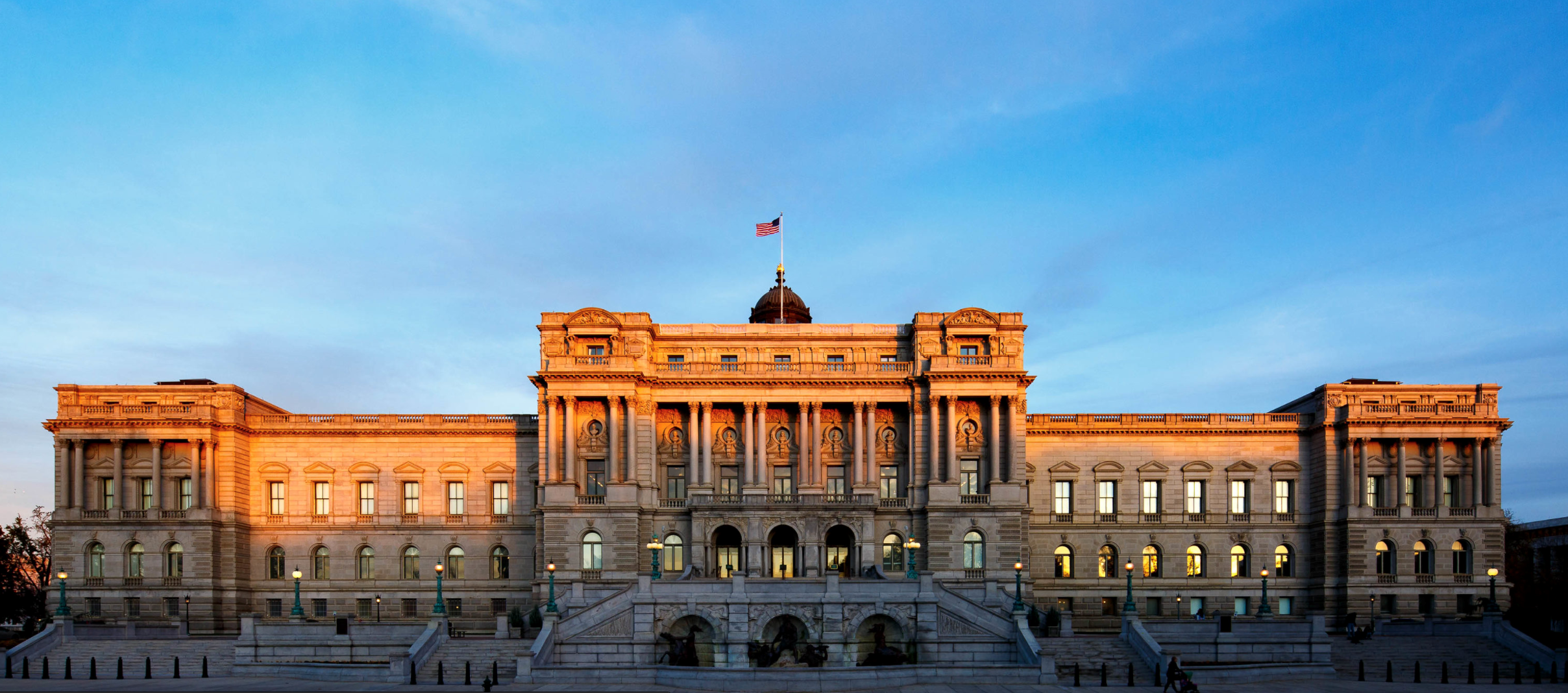The Jefferson Building. Photo: Shawn Miller.
This piece was co-written by my communications office colleague Brett Zongker.
The Library got its start on April 24, 1800, with a modest $5,000 appropriation. James Madison was the president. The capital was in Philadelphia. The first batch of books, 740 volumes and three maps, had to be ordered from London. The national population was 5.3 million. There was no Library building.
What a difference a couple of centuries — and twenty years — can make.

Interior, the Jefferson Building. Photo: Shawn Miller.
Your favorite national Library is celebrating its 220th birthday this week, now as the largest library in world history. It’s a remarkable achievement. But the COVID-19 pandemic has muted much of public life across the nation in these strange weeks, and life here is no different. All library buildings are closed. But our online and digital resources are as available to the world as ever, so we thought we’d offer our readers a ton of things to do.
Great things are scheduled all week. There are plenty of things for kids at our Engage! page, from drawings by “Dog Man” creator Dav Pilkey to videos from Jason Reynolds, the National Ambassador for Young People’s Literature. The National Book Festival Presents series is in full swing, most recently featuring a conversation mapping pandemics (old and new) with the Library’s John Hessler, curator of the Jay I. Kislak Collection and a specialist in computational geography and geographic information science.
The Archive of Recorded Poetry and Literature just added 50 recordings to the online collection for National Poetry Month, including Gwendolyn Brooks’ reading her iconic 1961 poem, “We Real Cool.”
But the most exciting thing may be an opportunity for music-makers and music-lovers everywhere: A chance to play with Citizen DJ, a groundbreaking project that inspires hip-hop music-making from home and opens new doors into the Library’s extensive audio collections.
Citizen DJ is an open-source web-browser application created by Brian Foo, Library of Congress 2020 Innovator in Residence, working in partnership with LC Labs. Using some of the Library’s free-to-use audio and moving image collections, Citizen DJ lets users select samples to create their own beats and sound mixes. It’s a great way for musicians, students and researchers to make discoveries in the Library’s vast collections.
While the project is scheduled to officially launch this summer, Foo believes early public testing will help make a better final product. There’s a premiere and virtual masterclass this afternoon.
“My goal is to develop a simple way to discover and use public-domain audio and video material for music making so that generations of artists and producers can use it to maximize their creativity,” Foo said. “That’s what Citizen DJ is all about – an easy-to-use tool that unlocks the amazing treasures in the Library.”
The sound collections in Citizen DJ were curated by Library staff. They’re copyright free and can be used however users wish. While some of the sounds are more than 100 years old and others come from the past decade, all of them are unique, compelling and in many cases hold deep historical and cultural relevance. The clips come from musical performances, theater productions, interviews, speeches, oral histories and ambient sound recordings. Foo is working with the staff to add more samples.
“It’s my hope that digital projects like Citizen DJ can offer musicians ample new creative material at no cost and can continue to engage and inspire all Americans from home,” Foo said. He added that as the world navigates the COVID-19 pandemic, “it’s fitting to remember that music is something that has the power to bring all people together, even when we physically need to be apart.”
The Citizen DJ demo takes about 15 minutes to complete. User testing is open until May 15. To stay up-to-date on Citizen DJ when it goes live, subscribe to the LC Labs Letter.

The Jefferson Building under construction, April 19, 1893. Photo: Levin C. Handy. Prints and Photographs Division.
It’s probably not the sort of thing James Madison imagined happening at the Library in the spring of 1800. But as Samuel Morse famously asked in his first telegraph message (which also resides at the Library): “What hath God wrought?”
Subscribe to the blog— it’s free! — and the largest library in world history will send cool stories straight to your inbox.















